Related Research Articles

The New Zealand national rugby union team, commonly known as the All Blacks, represents New Zealand in men's international rugby union, which is considered the country's national sport. Famed for their international success, the All Blacks have often been regarded as one of the most successful sports teams in history.
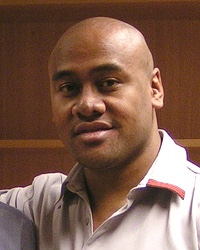
Jonah Tali Lomu was a New Zealand professional rugby union player. He is widely regarded as one of the greatest and most influential players in the history of the sport, and as one of the most talented sportsmen ever. Lomu is considered to have been the first true global superstar of rugby, and consequently had a huge impact on the game.
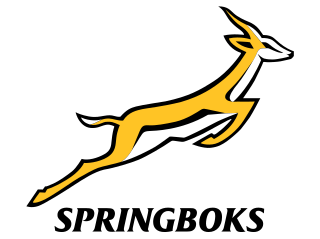
The South Africa national rugby union team, commonly known as the Springboks, is the country's national team governed by the South African Rugby Union. The Springboks play in green and gold jerseys with white shorts, and their emblem is the Springbok, a native antelope and the national animal of South Africa. The team has represented South African Rugby Union in international rugby union since 30 July 1891, when they played their first test match against a British Isles touring team. Currently, the Springboks are the reigning World Champions, having won the World Cup a record four times. South Africa have won half of the Rugby World Cups they have participated in and are also the second nation to win the World Cup consecutively.

The Australia men's national rugby union team, nicknamed the Wallabies, is the representative men's national team in the sport of rugby union for the nation of Australia. The team first played at Sydney in 1899, winning their first test match against the touring British Isles team.

New Zealand Rugby (NZR) is the governing body of rugby union in New Zealand. It was founded in 1892 as the New Zealand Rugby Football Union (NZRFU), 12 years after the first provincial unions in New Zealand. In 1949 it became an affiliate to the International Rugby Football Board, now known as World Rugby, the governing body of rugby union for the world. It dropped the word "Football" from its name in 2006. The brand name New Zealand Rugby was adopted in 2013. Officially, it is an incorporated society with the name New Zealand Rugby Union Incorporated.

Keven Filipo Mealamu is a former New Zealand rugby union footballer. He played at hooker for the Blues in Super Rugby, Auckland in the National Provincial Championship, and the New Zealand national team. He was part of the Blues team that won the 2003 Super 12 title, the third for the franchise. He was a key member of 2011 and 2015 Rugby World Cup winning teams, becoming one of only 21 players who have won the Rugby World Cup on multiple occasions.
The Cavaliers was an unofficial New Zealand rugby union team which toured South Africa in 1986. Because of the Apartheid policies of the South African government, the official New Zealand Rugby Union tour scheduled for 1985 was cancelled, and the Cavaliers tour was very controversial in New Zealand.
The 1980 New Zealand tour of Wales was a collection of friendly rugby union games undertaken by the New Zealand All Blacks against Wales that also took in two international games in North America en route to South Wales. This was a single test tour against each of the countries played, with four games against Welsh club opposition.
In 1978 the New Zealand national rugby union team, the All Blacks, toured Britain and Ireland. They were the eighth All Black team to undertake a full tour of the countries and became the first to achieve a Grand Slam by beating the national teams of Ireland, Wales, England and Scotland. The previous seven touring teams had either lost or drawn at least one international, or had not played all four nations.
1949 saw the second full tour of South Africa by a representative New Zealand rugby union team. The All Blacks achieved a record of 13 wins, 7 losses and 4 draws, and they lost the test series 4–0.
Colin "Col" Windon, was a rugby union player and soldier who captained Australia – the Wallabies – in two Test matches in 1951. By age 18 Windon was playing at flanker for his club Randwick in Sydney's Shute Shield. After serving with the Second Australian Imperial Force in the Pacific Theatre during the Second World War, Windon resumed his rugby career in 1946. He was first selected for Australia for their tour of New Zealand that year. Despite the Wallabies losing both their Tests on tour, Windon impressed with his play.
The 1984 France rugby union tour of New Zealand was a series of eight matches played in June 1984 by the France national rugby union team in New Zealand. The team won all six of their matches against New Zealand provincial teams but lost both their internationals against the New Zealand All Blacks.
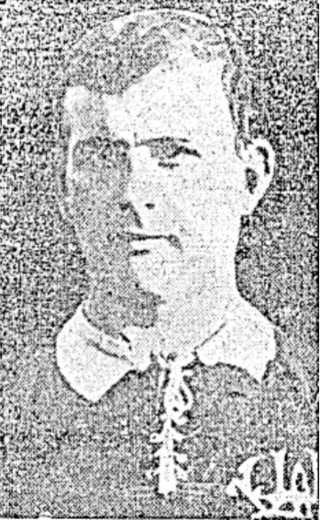
Eric L. Watkins was a New Zealand rugby footballer who represented New Zealand in both rugby union and rugby league.
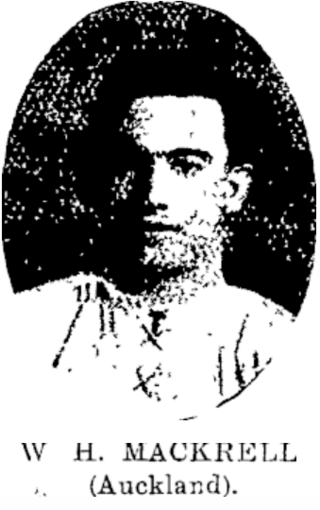
William Henry Clifton Mackrell was a New Zealand rugby footballer who represented New Zealand in both rugby union and rugby league. He was part of the 1905 The Original All Blacks tour and the professional 1907-1908 New Zealand rugby tour of Great Britain.
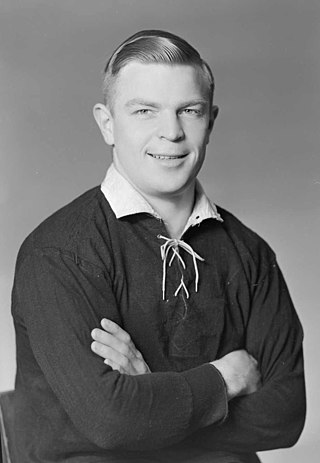
Peter "Sammy" Henderson was a New Zealand rugby union and rugby league footballer. He also competed at the 1950 British Empire Games in Auckland, winning a bronze medal in the 4 x 110 yards men's relay.
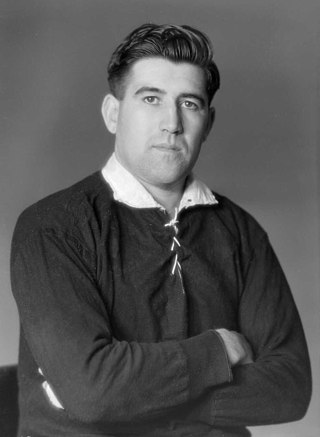
John Burns Smith was a New Zealand rugby union player, soldier, sportsman and baker. He was an All Black captain, and despite only playing nine matches is recognised as a great. His 26 appearances for the Second New Zealand Expeditionary Force rugby team, which toured the UK in 1946–47, earned him high praise. He also played for the New Zealand Māori, being of Ngāpuhi descent.
The 1977 New Zealand rugby union tour of Italy and France was a series of nine matches played by the New Zealand national rugby union team in Italy and France in October and November 1977. The All Blacks won eight of their nine games, losing only the first of the two internationals against France.

In rugby union, the Tom French Cup is an honour awarded by New Zealand Rugby Union (NZRU) to the Tom French Memorial Māori player of the year. The cup has been awarded annually since 1949, when it was donated to the New Zealand Māori coach Tom French while the team was on tour in Australia. French had represented Buller provincially, and was selected for New Zealand Maori in 1911. After the First World War, where he lost an arm at Passchendaele, French continued his involvement in rugby by serving as both a selector and administrator. In 1957 he was made a life member of the NZRU.
Scott Crichton is a former New Zealand rugby union player. A prop, educated at Wanganui Boys' College, Whanganui. After transferring to the Capital he played club rugby for the Karori, Oriental-Rongotai, Athletic and Western Suburbs rugby football clubs in Wellington.
Barry Graeme Ashworth is a former New Zealand rugby union player. A loose forward, Ashworth represented Auckland at a provincial level, and was a member of the New Zealand national side, the All Blacks, in 1978. He played seven matches for the All Blacks including two internationals.
References
- ↑ "Births". The Press . Vol. 85, no. 25958. 11 November 1949. p. 1. Retrieved 3 October 2023– via PapersPast.
- ↑ Knight, Lindsay. "John Ashworth". New Zealand Rugby Union. Retrieved 10 October 2014.